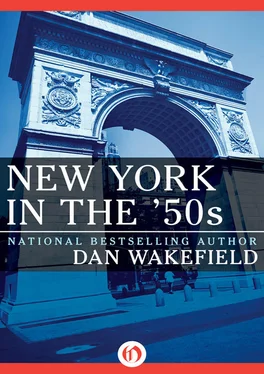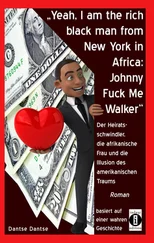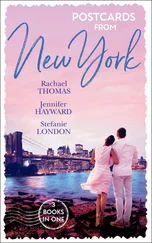His fifties code of ethics prevailed to the last.
Renewing bonds with friends who remain when I spent those few months in New York in the early part of 1991 turned out to be more enriching than I’d expected. I never even had a fantasy of living in New York again, but such wild ideas really came to me then, in spite of the grime and the crime, the sense of danger and drugs and the homeless, the dilapidation and the sky-high expense and what Nat Hentoff calls the show-business aspect of current New York. There were times, though, and people, and places: walking through Washington Square, hearing the political gossip in the jacuzzi at the Paris Health Club, laughing with Jane Richmond, reminiscing with Norm Eddy in East Harlem, and going to dinner at the Blue Mill with Ted the Horse. I don’t think I’d have the guts and courage—and money—to really go back, but at such times, with such old friends, I was thinking, well, maybe I could just go back for a little while. Then the lines came back to me that we used to recite on West 92nd Street, or on the roof at 10th and Bleecker, John Reed’s ode to New York that we said with the requisite sophisticated satire but also an eerie, exciting sort of chill:
Who that has known thee but shall burn
In exile till he come again
To do thy bitter will, O stern
Moon of the tides of men!

James Baldwin gave generously of his advice and his bourbon to young writers who gathered at his apartment on Horatio Street in the Village. ( Carl Van Vechten Collection, Library of Congress )

William F. Buckley, Jr., provided youth, eloquence, charm, and a new magazine, The National Review , to the conservative cause. ( Gert Berliner )

David Markson met Jack Kerouac for the first time at a neighbor’s apartment, bust the famous author of On the Road had already done too much partying for the night. ( Elaine Markson )

Helen Weaver met Kerouac when he came back to New York from San Francisco in 1956, and felt he “had endless imagination, and that gorgeous Massachusetts accent—and his sweetness.” ( Courtesy of Helen Weaver )

Murray Kempton’s column in the New York Post seemed to his fans like Proust working as a city desk reporter. ( New York World-Telegram and the Sun Newspaper Photograph Collection, Library of Congress )

Dan Wakefield (right) and Murray Kempton of the New York Post at the Emmett Till murder trial. September 1955. ( The Lilly Library, Indiana University, Bloomington, Indiana )

Nat Hentoff didn’t want to be typecast as a jazz critic, and started his column in the Village Voice to write about education, civil rights, books, and politics. ( National Endowment for the Arts )

As a young New York Times reporter, Gay Talese (second from left) recorded the homespun wisdom of Harry Truman during the ex-President’s morning constitutionals along Park Avenue. ( Courtesy Gay Talese )

As a precocious young critic and editor, Norman Podhoretz wrote that the Beat Generation was “a conspiracy to overthrow civilization” and replace it with “the world of the adolescent street gang.” ( Gert Berliner )

Allen Ginsberg reading his poem “King of May.” Ginsberg made writers and rebels welcome at his Lower East Side pad, where he lived with his poet companion Peter Orlovsky. ( Engramma.it )

Charles Mingus was one of those jazz stars whose innovative music drew hip crowds of painters, poets, and musicians to the Five Spot. ( Tom Marcello )

Billie Holiday at the Downbeat club in 1947. Holiday was banned from singing in New York nightclubs for more than a decade because of her arrest for heroin possession, but she gave a concert at the Loew’s Sheridan theater that packed the house in 1957. ( William P. Gottlieb Collection, Library of Congress )

Ike was happy to leave the presidency of Columbia University to become President of the United States. ( University Archives, Rare Book & Manuscript Library, Columbia University )

Sociologist C. Wright Mills’s books White Collar and The Power Elite shook up the status quo and set the stage for the New Left of the sixties. ( Yaroslava Mills )

No man in a gray flannel suit, Mills roared into Columbia on his motorcycle like an intellectual guerrilla warrior. ( Yaroslava Mills )

Novelist, essayist, critic, and editor, Robert Phelps was a literary friend and guru to countless writers who, like Dan Wakefield, adopted him as “Uncle Bobby.” ( Rosemarie Beck )
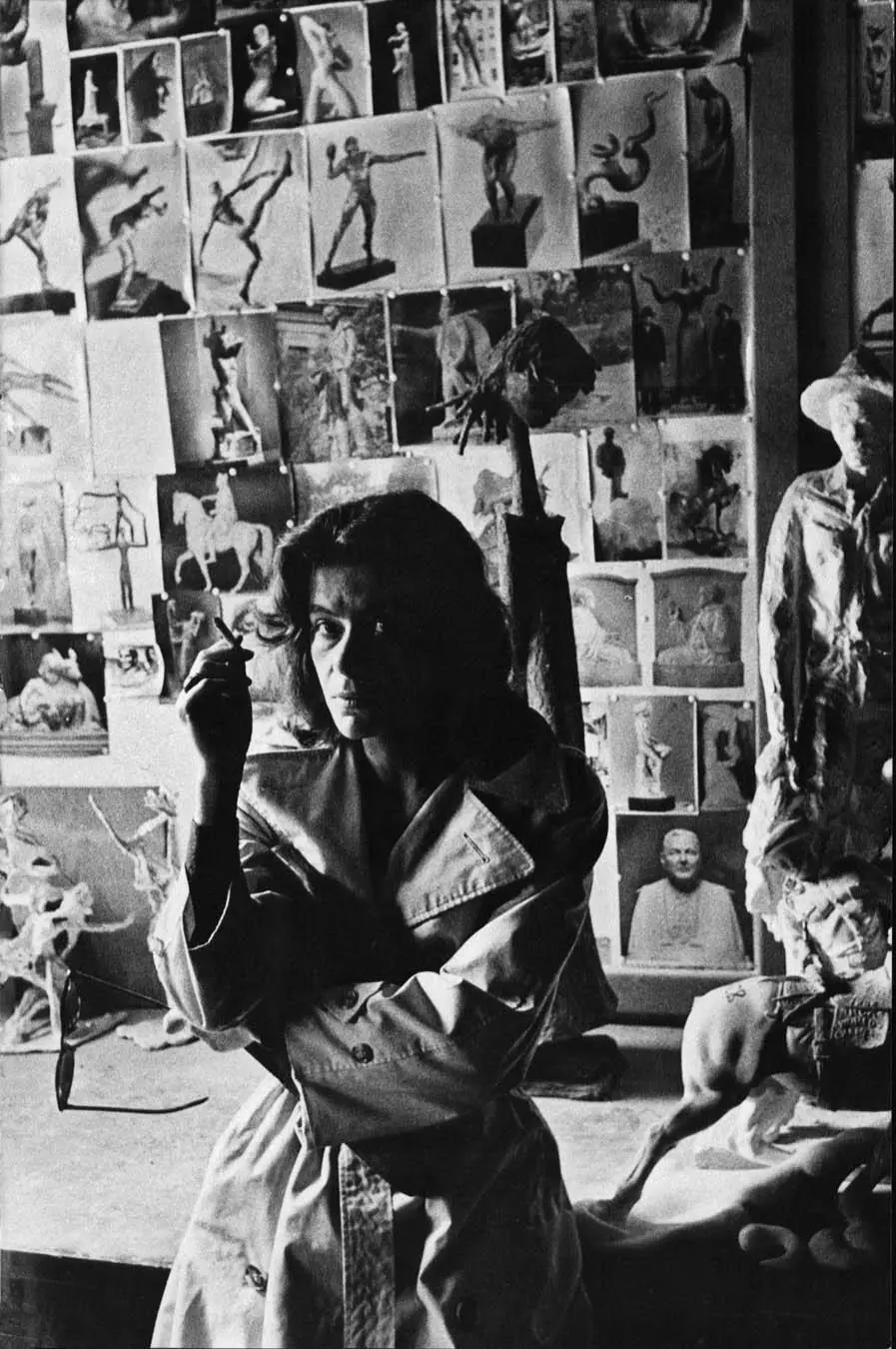
Editor and critic Marion Magid went to Barnard from the Bronx and discovered “the cultural encounter of Jews and goyim, New York and Midwest.” ( Gert Berliner )
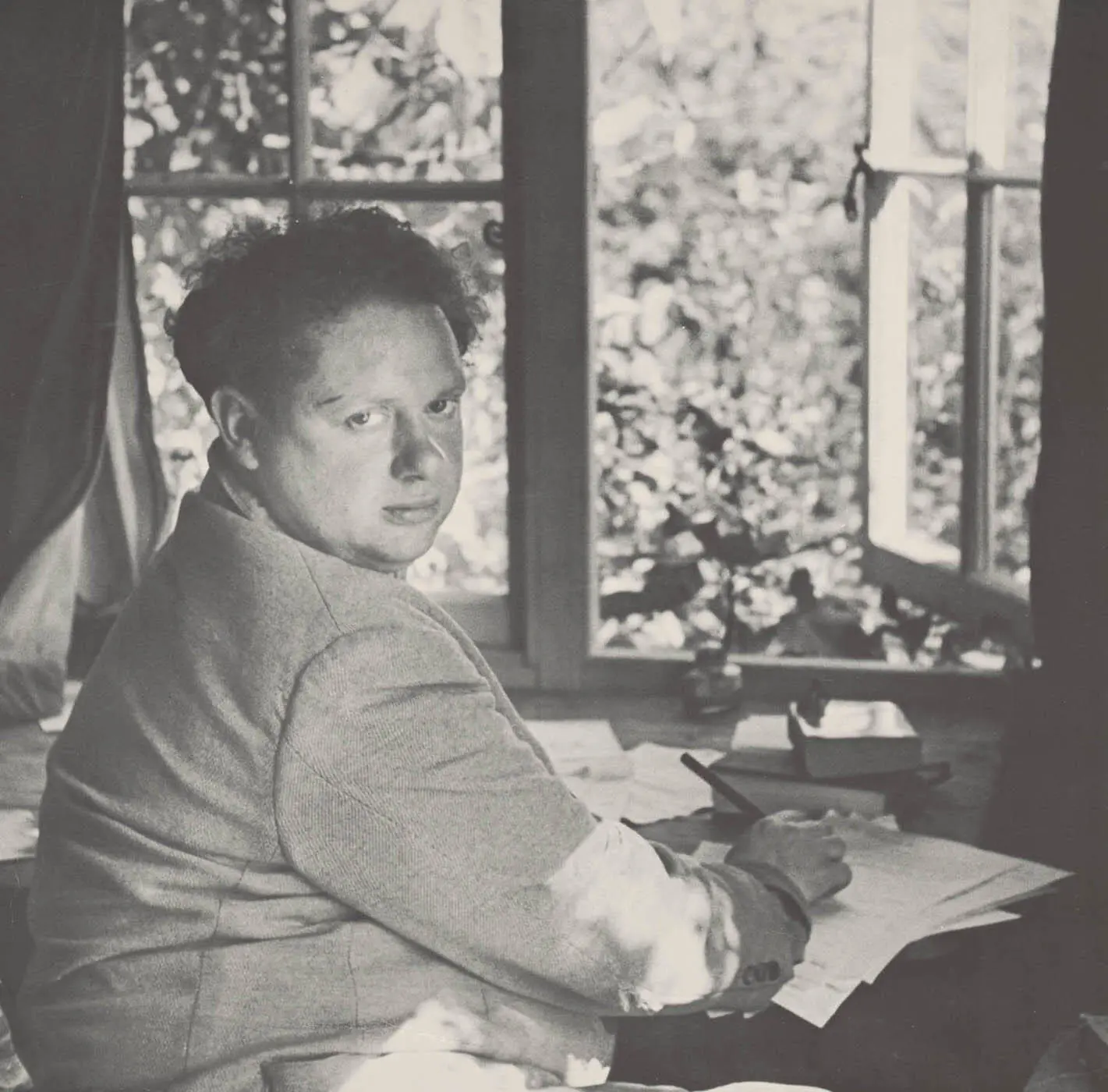
Читать дальше
